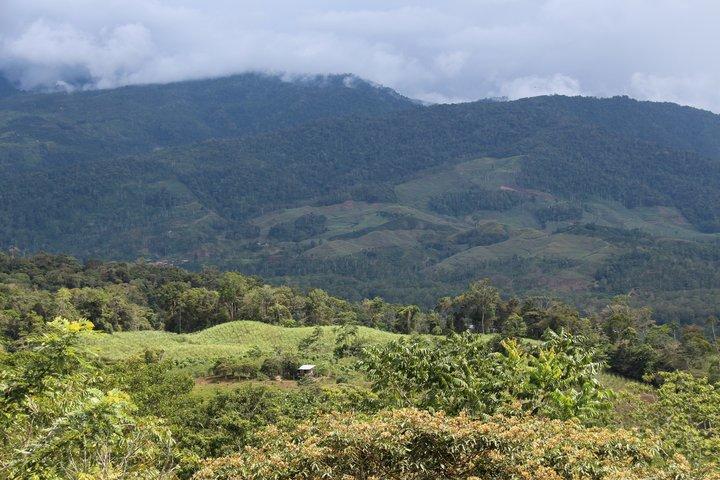Costa Rica improves risk-management with digital emergency response system

Bioversity International’s agro-climatic risk management, in cooperation with The Ministry of Agriculture and Livestock of Costa Rica, produced a national-scale system documenting agricultural losses to Hurricane Otto in real time, assisting the development of an immediate response plan.
Bioversity International’s agro-climatic risk management, in cooperation with The Ministry of Agriculture and Livestock of Costa Rica, produced a national-scale system documenting agricultural losses to Hurricane Otto in real time, assisting the development of an immediate response plan.
The system was comprised of a mobile phone application used by Ministry officials to collect data locally, and by locating the farms using GPS, send the corresponding data to Bioversity International servers, allowing for rapid development of an action plan.
Extreme events of Hurricane Otto in November 2016 have left Costa Rica experiencing negative effects on food production, the response to which is a responsibility of the Ministry of Agriculture and Livestock. In the past, the Ministry lacked access to reliable and timely local agro-climatic information to make fast decisions, but following the events in 2016, the Ministry promptly responded by assessing the agricultural losses and building a detailed response plan using a national-scale system of real-time collection of damage data.
Ministry officials visited farms across Costa Rica to collect andsend hurricane damage data through a mobile application, which allowed them to locate farms using GPS and forward the data to Bioversity International servers in real-time. The agricultural losses from the data collected were documented as US$57 million, and the national-scale programme allowed the Ministry and Bioversity International to build a detailed response plan in a very short time.
The agro-climatic risk management system was developed by Bioversity International as a part of the CGIAR programme on Climate Change, Agriculture and Food Security (CCAFS)’s initiative AgroClimas. The Ministry’s investment in the digital system helped integrate agro-climatic information into the government’s decision-making and allowed for a more profound data analysis, significantly reducing emergency response times.
AgroClimas was initially implemented in Guatemala throughout 2015, demonstrating its relevance for Costa Rica. In late 2015, when Costa Rica struggled with flooding, Bioversity International successfully piloted the aforementioned digital system and decision-making in partnership with local government of the city Siquirres. This joint effort deepened the mutual trust among the Costa Rican authorities and Bioversity International, and helped validate the system for use in Costa Rica.
At the signing of the Technical Cooperation Agreement with the Ministry of Agriculture of Costa Rica in Turrialba in May 2016, Bioversity International’s Costa Rica Office coordinator Dr Jacob van Etten explained: "We are working with our partners on studies about the damage produced by different climate events and formulation of strategies for adapting the agriculture. Usually there is an immediate response in giving support and aid to farmers when a climatic event happens, but a strong long-term plan is urgently required because these events are becoming more frequent."
This article has been adapted from CCAFS's Annual Report 2016.
Click here to read the original article on CCAFS's website.
Partners
This work is part of the CGIAR Research Program on Climate Change, Agriculture and Food Security (CCAFS), and is supported by CGIAR Fund Donors.
Photo:Multi-functional landscape in Turrialba, Costa Rica. Photo credit: Bioversity International/C.Zanzanaini
